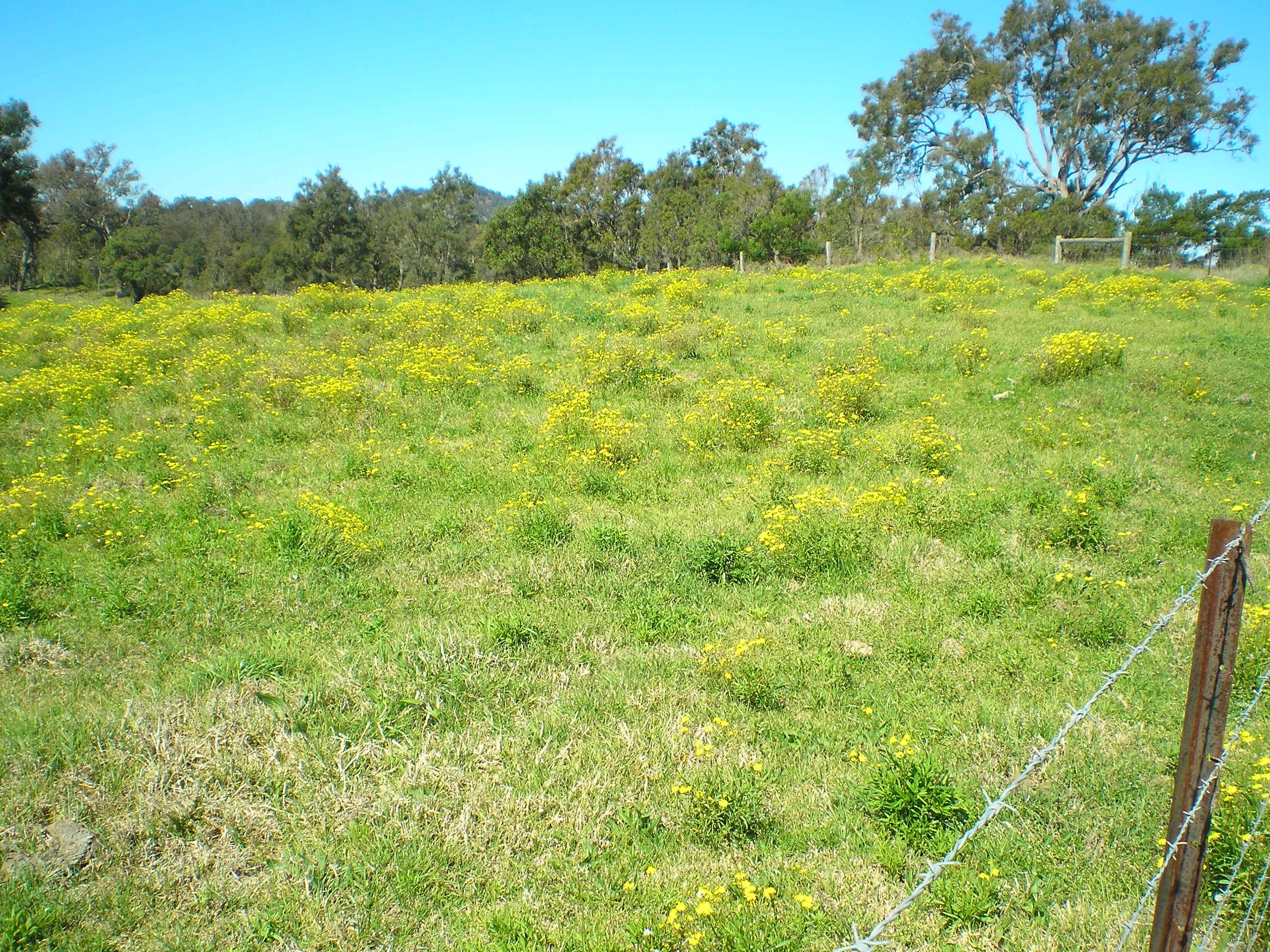
Pasture infested by fireweed in Bega, NSW (Photo: R. McFadyen)
Fireweed (Senecio madagascariensis) is a daisy (Asteraceae family) native to southern Africa that has become a significant invasive weed of dairy and other grazed pastures across south-eastern Australia. Fireweed infestations can reduce stocking rates by lowering the palatability of pasture, particularly for cattle, and exposing livestock to poisonous alkaloids. Since it was detected in Australia, fireweed has become invasive in NSW and south-eastern Queensland, with potential for further spread into Victoria and grazing land of northern Queensland.
The CSIRO, in partnership with the University of KwaZulu-Natal (South Africa), undertook research into the biological control (biocontrol) of fireweed, with a focus on two candidate insect agents: a root-feeding flea beetle (Longitarsus basutoensis) and a stem-boring weevil (Gasteroclisus sp.). The aim of the research program was to ascertain the level of host-specificity of each candidate agent and their safety for potential release into the Australian environment to help control fireweed.
Research on the flea beetle was concluded in 2019, whilst research on the weevil commenced in 2020 and concluded in December 2023.
The Australian Department of Agriculture, Fisheries and Forestry is acknowledged for financially supporting the development of a biocontrol solution for fireweed. Our research was supported by the Bega Valley Fireweed Association.
